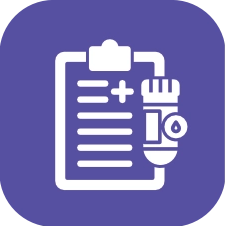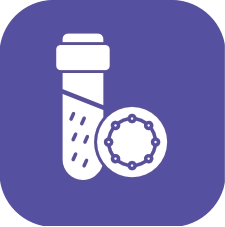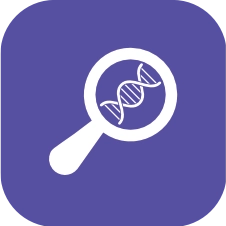In collaboration with leading diagnostic laboratories in Poland, we’ve developed a range of test panels tailored to the most common health needs of our patients. From supporting gut and overall body balance to detecting intolerances and lifestyle-related diseases,all the way to specialized genetic and oncology testing, each package is a practical tool to help you better understand your body and take informed steps toward better health.

BODY BALANCE
Internal Balance Panel
Healthy Gut Panel

ALLERGIES AND INTOLERANCES
Food Intolerance Panel – Basic
Food Intolerance Panel – Extended

EARLY CANCER DETECTION
OncoScreen Panel

GENETIC TESTING
Oncology Genetics Panel
Blood Genetics Panel

TOXINS AND MICRONUTRIENTS
OnkoBalance Check-Up Panel

Who is it for?
This panel was designed for individuals who:
Why it matters
This advanced panel includes tests that are often overlooked in standard diagnostics but can play a critical role in your hormonal and metabolic balance.
It covers, among others:
For individuals struggling with abdominal pain, bloating, constipation, diarrhea, food intolerances, or chronic inflammation.
Also recommended for those who suspect gut dysbiosis, experience skin issues, low immunity, or brain fog, or have been diagnosed with autoimmune conditions such as Hashimoto’s disease, eczema (atopic dermatitis), or rheumatoid arthritis.
The Healthy Gut Panel helps assess the gut microbiota, enzyme activity, and key metabolites, and can identify hidden deficiencies or impaired digestive function.
It’s the first step toward supporting your health from the inside out — improving digestion, immunity, and overall well-being.
This panel is designed for individuals who maintain a healthy diet yet continue to experience: bloating, abdominal pain, diarrhea, constipation, a feeling of heaviness, fatigue, skin problems, or headaches.
The Food Intolerance Panel is ideal for those who suspect their body may be reacting adversely to certain food components, even when standard allergy tests show no clear results.
Who is it for?
This panel is designed for individuals who want to take a proactive approach to their health by detecting potential cancer-related changes before any symptoms appear.
It is especially recommended for:

Who is it for?
This panel is intended for individuals who want to take a proactive, informed approach to their health and determine whether they carry a hereditary genetic predisposition to breast, ovarian, or prostate cancer.
It is especially recommended for:
Why it matters?
Early identification of cancer-related genetic mutations enables preventive steps such as:
Oncogenetic Panel for Women:
Oncogenetic Panel for Men:
Who is it for?
Hereditary disorders related to blood clotting and iron metabolism can remain undetected for years — often until serious symptoms appear.
This panel is designed for individuals who want to check for genetic mutations that may increase the risk of conditions such as inherited thrombophilia or hemochromatosis (excess iron accumulation in the body).
This panel is especially recommended for:

MTHFR Gene Mutation Testing (C677T and A1298C) is increasingly performed in children with autism spectrum disorder (ASD), ADHD, speech and developmental delays, concentration difficulties, and cognitive impairments.
In children with MTHFR gene mutations, the following issues are commonly observed:
Why is this test important?
Identifying MTHFR mutations can help personalize supplementation — especially with methylated forms of folate (B9) and vitamin B12 — which may positively impact a child’s development, focus, behavior, and overall functioning.
The test is performed using a non-invasive cheek swab, making it completely painless and comfortable — even for highly sensitive children.
This panel evaluates the body’s metabolic environment — including micronutrient balance, toxin exposure, oxidative stress levels, and key anti-inflammatory markers.
It can be used independently or as a complementary panel alongside genetic and oncology testing.
The goal is to assess biological factors that may increase the risk of cancer development or negatively impact prognosis.
Who is it for?
This panel is also an excellent follow-up to genetic and oncological diagnostics, offering the next step in personalized cancer prevention and whole-body support.